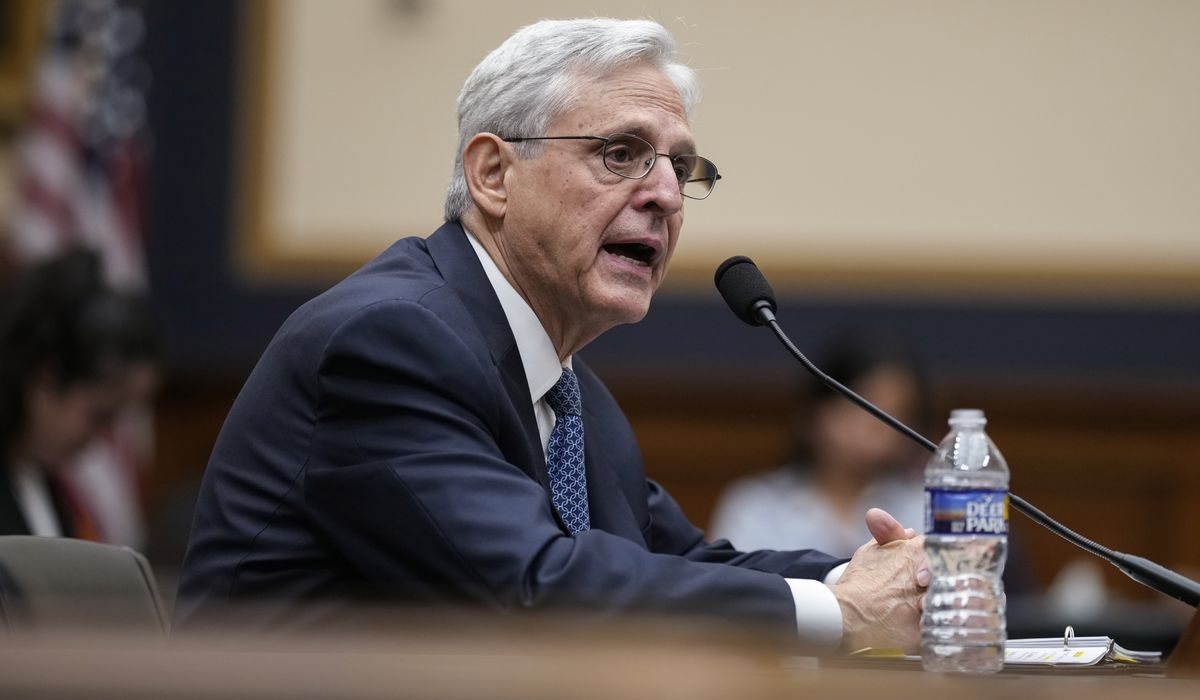


The Justice Department pushed for an aggressive approach in the search for classified documents at Donald Trump’s home, according to a senior FBI official who said the department overruled agents who wanted to try to gain the former president’s cooperation.
Steven D’Antuono, who ran the FBI’s Washington Field Office until his retirement late last year, said in a deposition released last week by congressional Republicans that he and his agents had recommended a “consent” approach, trying to have government lawyers talk to the former president’s lawyers about turning over the documents.
He said higher-ups decided they wouldn’t get cooperation so they approved the search, which saw 30 FBI agents swoop into Mar-A-Lago to pore through the former president’s home, including former first lady Melania Trump’s closet.
It was a different story for Hunter Biden, the current president’s son, when the FBI and IRS agents wanted to execute a search for documents they felt would build their tax evasion case. According to testimony by Gary Shapley, a senior IRS agent, they were stymied by prosecutors who not only told them to hold off, but tipped off Mr. Biden’s lawyers to the agents’ interest.
“The legal counsel for [Hunter] Biden was given all kinds of heads-up and notices, and they worked with him where that wasn’t extended to President Trump,” Rep. Jim Jordan, chairman of the House Judiciary Committee, told The Washington Times.
He spoke just after Mr. D’Antuono’s testimony was made public and after Attorney General Merrick Garland had faced lawmakers for hours of grilling over the two cases.
The juxtaposition of the two approaches fueled Republicans’ sense that the government machinery is treating one of the two top presidential candidates differently than the other.
Mr. Garland fended off those accusations, though he acknowledged the comparison and indeed, at one point in the hearing, even confused the two searches.
“I’m sorry, I thought you were asking about Mar-A-Lago,” he told Rep. Andy Biggs, Arizona Republican, who had in fact been asking about the Justice Department’s tip-off to Hunter Biden’s lawyers that effectively scuttled agents’ search attempt in that case.
Mr. Garland said each search — and the decision to go in heavy or light — must be considered on its own facts.
“There’s no policy on this question. The strategy and tactics to be used to preserve evidence are left up to the investigators and offices on the ground. Sometimes it would be a serious mistake to call up. Sometimes it would not,” he said.
He demurred on questions about the heads-up given to Mr. Biden’s team, saying those decisions were made by David Weiss, the U.S. attorney in Delaware who led the probe and who was appointed to the job by Mr. Trump.
As for the former president, he now faces 40 federal charges stemming from the classified documents and his interactions with the government over their return.
Mr. D’Antuono said the Justice Department took the aggressive approach toward Mr. Trump despite a sense from the agents that a more conciliatory approach would work.
“I don’t know where it switched or at what point in time, but DOJ had an opinion that they weren’t going to get cooperation out of the attorney, which I still think you have to give it the college try because that — to me it’s about the narrative,” he said.
He said there wasn’t anything illegal or against policy in the heavy-handed approach, but he said he thought there was “a good likelihood that we could have got a consent.”
Instead, the aggressive approach created a backlash.
“I think the bureau — we were left holding the bag again, right, and we cut ourselves,” Mr. D’Antuono said.
The searches were not the only differences in the Justice Department’s approach to the two cases.
Both IRS and FBI agents assigned to the Hunter Biden Investigation complained that things were taking too long. The probe was opened in 2018, but charges weren’t brought until this year, which Republicans said meant the statute of limitations had run out on some of the most serious years of tax evasion.
In Mr. Trump’s case, the Justice Department pushed for speedy action, according to Mr. D’Antuono. That even included pushing the agents to execute their search on a specific day.
Mr. D’Antuono said that could be because the department worried that the longer the classified documents remained in Mr. Trump’s hands, the more risk there was to national security.
Mr. Jordan told Mr. Garland the aggressive approach seemed odd because Mr. Trump had been cooperating to that point, allowing the FBI access to Mar-A-Lago a first time, then turning over more documents when they were found, and locking other documents away in a storage room,
“Everything they asked him to do, he did. And then what’s the Justice Department do?” Mr. Jordan said. “They raid President Trump’s home.”
Rep. Glenn Ivey, Maryland Democrat, challenged that version of events.
“In fact, the allegations are he in fact moved documents and tried to hide them so the Department of Justice couldn’t get them,” Mr. Ivey said.
He said that’s why the FBI executed the unannounced search.
“There’s no surprise, and there’s certainly no two tiers of justice with respect to what was done in that instance,” he said. “In fact the fact that they took so long to do it I think is based entirely on the fact that he had been president.”
• Stephen Dinan can be reached at sdinan@washingtontimes.com.
• Kerry Picket can be reached at kpicket@washingtontimes.com.
